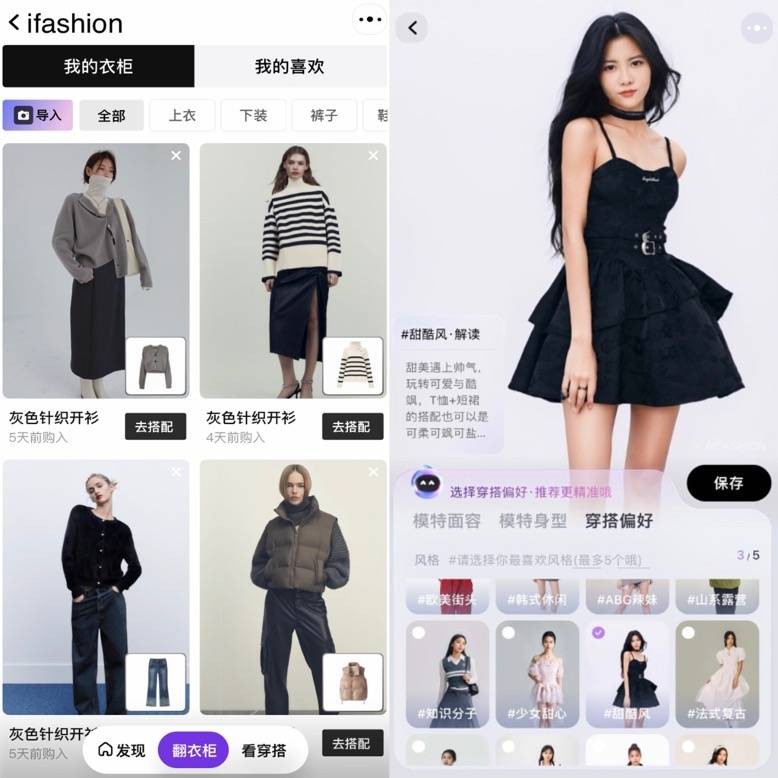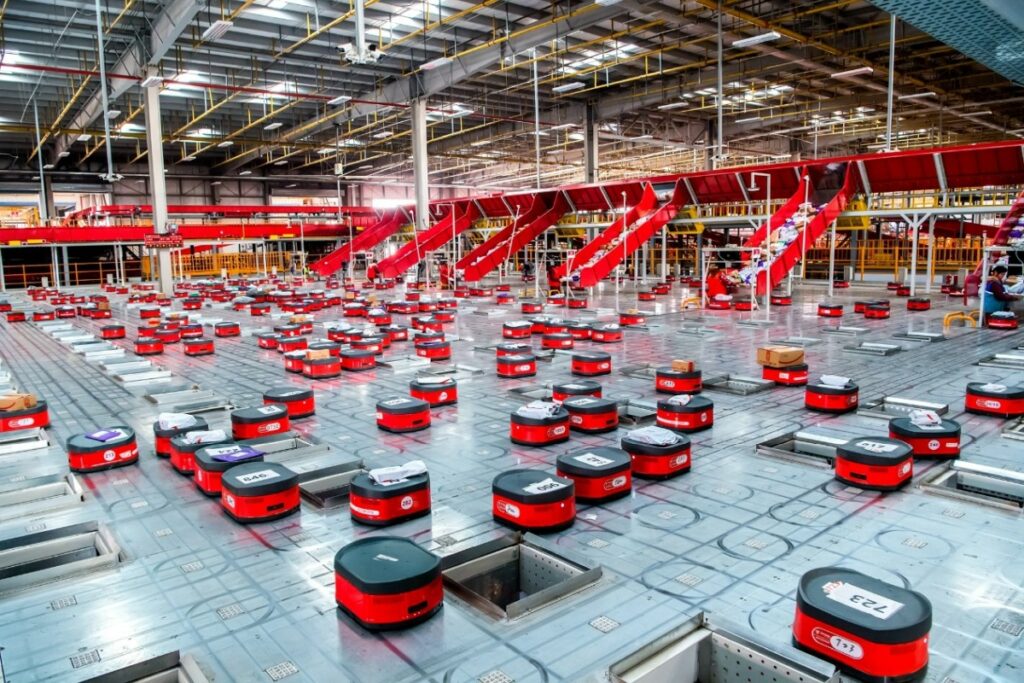The future of AI in retail is set to transform how businesses operate, innovate, and connect with their customers. Artificial intelligence (AI) has already begun reshaping the retail landscape, and as it continues to evolve, its potential to optimize processes, deliver hyper-personalized experiences, and anticipate customer needs is unparalleled. For retailers, AI represents more than just a technological advancement—it’s a transformative force driving efficiency, enhancing customer engagement, and setting new standards for success in a competitive market.
China stands at the forefront of this transformation, emerging as a global leader in AI-driven retail innovation. Companies like Alibaba, JD.com, Tencent, and Bytedance have pioneered the adoption of AI technologies, from real-time recommendation engines and automated supply chains to augmented reality shopping experiences. These firms are not just implementing AI; they are redefining what retail can achieve through cutting-edge applications. Their success provides a clear blueprint for businesses worldwide, demonstrating how AI can be leveraged to deliver exceptional value to customers while driving significant operational gains.
The strength of China’s retail ecosystem lies in its ability to harness data-driven decision-making and seamlessly integrate advanced technology into every aspect of the customer journey. Whether it’s through personalized product recommendations that boost conversion rates, AI-powered logistics that ensure same-day deliveries, or virtual try-ons that bridge the gap between online and offline shopping, Chinese companies are setting a high bar for innovation. As these trends continue to evolve, they highlight the immense opportunities AI offers for creating frictionless, engaging, and efficient shopping experiences.
Looking toward 2025, the lessons from China’s leadership in AI provide a roadmap for global retailers. To explore this shift further, check out our full breakdown of what is the future of retail. By adopting similar strategies, businesses can position themselves at the forefront of the retail revolution. In this article, we’ll dive deep into how AI is transforming the retail industry, explore its impact through four key aspects, and showcase real-world case studies that highlight the power of AI. Finally, we’ll learn how experts like Ashley Dudarenok can guide businesses in navigating this rapidly changing landscape, helping them leverage AI to secure a competitive edge.
The Impact of AI on the Retail Industry
The impact of AI on the retail industry is profound, touching every aspect of how businesses operate, engage with customers, and compete in a fast-paced digital landscape. As retailers adapt to an increasingly technology-driven world, AI has emerged as a cornerstone for innovation and efficiency. From personalized shopping experiences and predictive analytics to supply chain optimization and virtual shopping tools, AI is reshaping the way retail functions and evolves.
Retail, at its core, is about understanding customer needs and delivering value. AI takes this principle to the next level by enabling businesses to gather, analyze, and act on vast amounts of data. This allows retailers to predict customer preferences, optimize inventory, streamline logistics, and deliver seamless omnichannel experiences. The result is a retail environment that is not only more efficient but also more intuitive and responsive to customer demands.
China, a leader in retail innovation, exemplifies the transformative power of AI in this space. Companies like Alibaba, JD.com, and Tencent are pioneering AI applications that drive personalization, automation, and immersive shopping experiences. Whether it’s real-time product recommendations, automated warehouses, or augmented reality tools, these technologies are setting benchmarks for the global retail industry.

1. Enhanced Customer Experiences
AI enables retailers to personalize interactions, creating shopping experiences tailored to individual preferences. Advanced algorithms analyze data from browsing behavior, purchase history, and even external factors like weather or trends to recommend products or services.
In China, platforms like Taobao and JD.com use AI to deliver hyper-targeted content to millions of users, fostering deeper engagement and driving higher conversion rates. Personalized experiences not only increase sales but also build customer loyalty by making users feel valued.
2. Operational Efficiency
AI streamlines supply chains, inventory management, and logistics. Predictive analytics help retailers forecast demand, optimize stock levels, and reduce waste. Automated warehouses and delivery systems, powered by AI, enable faster and more accurate order fulfillment.
JD.com’s automated warehouses, for example, handle millions of orders daily with minimal human intervention, cutting costs and improving efficiency.

3. New Revenue Streams
AI opens new avenues for revenue generation, such as voice commerce, visual search, and augmented reality. These innovations enhance the shopping journey and encourage customers to explore products in novel ways.
Platforms like Xiaohongshu (Little Red Book) incorporate AI-driven AR to let users try on makeup or clothing virtually, improving engagement and reducing product returns.
4. Future-Proofing Retail
As AI capabilities expand, retailers are better equipped to adapt to changing market demands. AI’s ability to analyze trends, anticipate customer needs, and deliver real-time insights gives businesses a competitive edge in a rapidly evolving industry.

How AI Changing Retail from Four Aspects
AI is influencing retail through personalization, automation, visual engagement, and conversational commerce. Below, we explore each area through real-world case studies, showcasing how Chinese companies are leading the charge.
1. Personalization: AI-Powered Customer Experiences
Personalization is at the core of AI’s transformative power in retail, reshaping how businesses connect with customers. AI leverages vast amounts of customer data—from browsing history and purchase habits to demographics and even real-time behaviors—to deliver tailored experiences. This level of personalization enables businesses to create highly relevant product recommendations, targeted advertisements, and customized communication that resonate deeply with individual shoppers.
Case Study: Alibaba’s Personalized Recommendations
Alibaba, a global leader in AI-driven retail, exemplifies the power of personalization through its advanced recommendation system. During major sales events like the Double 11 Shopping Festival, Alibaba’s AI analyzes customer preferences in real-time, identifying patterns and trends to curate personalized product suggestions. These recommendations significantly improve the shopping experience by simplifying decision-making and presenting items shoppers are most likely to buy.The impact is substantial: Alibaba’s AI recommendation engine is responsible for driving over 30% of sales during key events, reflecting how personalization directly translates into increased conversions and revenue.
This is one of many powerful examples of customer centricity in China shaping retail innovation.
Why It Matters:
Personalization is no longer a luxury—it’s a necessity in today’s competitive retail landscape. Customers expect brands to understand their needs and preferences, and those that excel at personalization foster deeper connections, build trust, and enhance loyalty. Retailers that harness AI-powered personalization stand out in crowded markets, delivering not just products but value and relevance at every touchpoint.
2. Automation: Revolutionizing Supply Chains
AI is revolutionizing supply chain management by automating repetitive tasks, predicting demand, and optimizing logistics. With its ability to process large datasets in real-time, AI provides insights into inventory levels, demand patterns, and operational bottlenecks, enabling faster decision-making and greater efficiency.
Case Study: JD.com’s Automated Warehouses
JD.com, one of China’s largest e-commerce platforms, operates fully automated warehouses that showcase the power of AI in logistics. These facilities are equipped with advanced robots capable of sorting, packing, and shipping products without human intervention. During peak periods like shopping festivals, these automated systems handle millions of orders seamlessly, ensuring on-time deliveries and high customer satisfaction.
By reducing reliance on manual labor, JD.com has significantly lowered operational costs while improving accuracy and speed. AI also helps JD.com predict demand, ensuring optimal inventory levels and reducing overstock or stockouts.

Why It Matters:
Efficiency is critical in retail, especially in an era where same-day or next-day delivery has become the norm. AI-powered automation allows retailers to scale operations while minimizing errors, cutting costs, and meeting customer expectations for fast, reliable service. In a competitive landscape, operational excellence driven by AI can be a key differentiator.
3. Visual AI: Enhancing In-Store and Online Engagement
Visual AI technologies, such as augmented reality (AR) and image recognition, are redefining how customers interact with products both online and in-store. By providing immersive and engaging experiences, these tools bridge the gap between physical and digital shopping, giving customers the confidence to make informed purchase decisions.
Case Study: Xiaohongshu’s AR Try-On Feature
Xiaohongshu (Little Red Book), a popular social commerce platform in China, has successfully integrated AR try-on tools to enhance the shopping experience. Users can virtually try on products like makeup, clothing, or accessories using their smartphones. This feature allows customers to see how a product looks on them before making a purchase, reducing uncertainty and enhancing satisfaction.
The result? Brands on Xiaohongshu have reported higher engagement rates and improved conversion rates, especially in categories like beauty and fashion where visual appeal is critical. AR try-ons have also contributed to fewer product returns, saving costs for retailers and improving the overall customer experience.
Why It Matters:
Visual AI provides a unique way to engage customers, making the shopping journey interactive and enjoyable. For industries like beauty, fashion, and home décor, these tools help overcome the limitations of online shopping by allowing customers to visualize products in real-life contexts. Retailers that adopt visual AI not only boost customer confidence but also gain a competitive edge in delivering next-generation shopping experiences.
For more real-world examples, explore customer engagement strategies from China that work.

4. Voice Commerce: The Rise of Conversational AI
AI-powered voice assistants are reshaping the retail landscape by enabling customers to shop using voice commands. Voice commerce is particularly effective for simplifying tasks like searching for products, placing orders, and reordering frequently purchased items. This hands-free convenience is especially appealing to tech-savvy consumers and those seeking quick, seamless transactions.
Case Study: Tencent’s WeChat Voice Assistant
Tencent has integrated an AI voice assistant into its WeChat platform, enabling users to interact with retailers conversationally. Shoppers can use voice commands to browse products, make purchases, and process payments without ever leaving the WeChat app. This integration combines the convenience of conversational AI with the seamless functionality of an all-in-one platform.
Voice commerce on WeChat has seen widespread adoption, particularly for routine purchases and time-sensitive transactions, demonstrating its potential to become a major component of e-commerce in the coming years.
Why It Matters:
Voice commerce offers an intuitive, hands-free shopping experience that aligns with today’s demand for convenience. As smart speakers and AI assistants become more prevalent, voice commerce is poised to grow rapidly, providing retailers with a new channel to engage customers. Retailers that invest in conversational AI can capture this emerging market and enhance their omnichannel strategies.
From personalized shopping experiences to automation, visual AI, and conversational commerce, AI is transforming every aspect of the retail industry. Businesses that embrace these innovations will not only meet but exceed customer expectations, ensuring loyalty and long-term growth. By learning from industry leaders like Alibaba, JD.com, Xiaohongshu, and Tencent, retailers can adopt AI-driven strategies that deliver measurable results and create competitive advantages in an evolving marketplace.
As AI continues to evolve, its role in retail will only grow stronger, bridging the gap between online and offline channels and enabling businesses to stay ahead of ever-changing consumer expectations. The impact of AI on the retail industry isn’t just a story of technology—it’s about building smarter, more sustainable, and customer-focused businesses.
Ashley Dudarenok: Leading Keynote Speaker
China marketing expert Ashley Dudarenok is a globally recognized expert and thought leader in Digital China, New Retail, and tech ecosystems. She is the author of 11 best-selling books, each providing invaluable insights into these transformative topics. As a professional keynote speaker, Ashley specializes in the future of retail, customer centricity, China’s tech ecosystems, and evolving business models, making her a sought-after voice for businesses navigating the fast-paced world of retail and technology.Ashley is frequently consulted by top management and boards of leading companies to provide visionary strategies on digital transformation, the future of retail, and customer-centric practices, particularly in the highly competitive Chinese market. Her expertise has earned her a place among the World’s Top 100 Retail Influencers and recognition as a leading technology keynote speaker.

Collaborating with multinational corporations such as Coca-Cola, J&J, Shiseido, BMW, and Disney, Ashley has contributed to pioneering retail strategies that leverage cutting-edge technology and customer insights. Recognized by Forbes for her thought leadership in Chinese customer centricity and China leadership models, she has direct access to up-to-date data and trends in Digital China, enabling her to offer timely and actionable insights on the future of AI in retail.

Ashley Dudarenok as a Retail Technology Keynote Speaker
As an engaging and professional retail keynote speaker, Ashley Dudarenok delivers expert insights into how technology is revolutionizing the retail industry. Her presentations focus on four key areas of transformation—a topic she often explores as a digital transformation speaker—offering practical strategies for businesses to stay ahead in a rapidly changing market:
- Omnichannel Integration: Ashley highlights the critical role of seamlessly merging online and offline retail channels to create unified and frictionless customer experiences. Her expertise empowers retailers to adopt omnichannel strategies that cater to today’s digitally savvy consumers.
- Data-Driven Personalization: As a customer experience keynote speaker, Ashley shares how data-driven insights can predict trends and build loyalty.
- Innovations in Delivery: Ashley explores the evolving delivery proposition in the digital age, showcasing how technology is driving advancements in logistics, last-mile delivery, and enhanced convenience for customers. From drones to autonomous vehicles, she outlines the future of AI in retail logistics and fulfillment.
Conversational Commerce: Highlighting the rise of chatbots, AI-powered assistants, and voice commerce, Ashley explains how conversational technologies are reshaping customer interactions, streamlining decision-making, and driving sales growth.

How Technology is Changing Retail – Frequently Asked Questions (FAQs)
Hiring a keynote speaker might just be the secret key to success for your event. Our FAQs address the value and impact of this decision.
-
What is the role of AI in the future of retail?
AI is set to revolutionize retail by enhancing customer experiences, optimizing supply chains, enabling personalized marketing, and improving operational efficiency. From predictive analytics to AI-powered chatbots, the technology will drive smarter decision-making and seamless shopping experiences.
-
How does Ashley Dudarenok’s keynote help businesses understand the future of AI in retail?
Ashley’s keynote dives into practical applications of AI in retail, offering actionable insights on how businesses can implement AI-driven strategies for personalization, operational efficiency, and customer engagement. She provides real-world case studies and a forward-thinking approach to equip organizations for the evolving retail landscape.
-
What are some examples of AI applications in retail?
AI is used for a variety of purposes in retail, including:
– Chatbots and virtual assistants for customer support.
– Visual AI for virtual try-ons and image-based searches.
– Inventory management using predictive analytics.
– Personalized recommendations based on AI algorithms. -
How does AI personalize the shopping experience?
AI uses customer data, such as browsing history, purchase behavior, and preferences, to provide tailored recommendations, targeted promotions, and personalized communication. This creates a more engaging shopping journey that builds loyalty and increases conversion rates.
-
Why is Ashley Dudarenok the right keynote speaker for understanding AI in retail?
Ashley is a globally recognized expert on Digital China, New Retail, and tech ecosystems. Her in-depth knowledge of AI-driven innovations in China’s retail industry provides businesses with insights into cutting-edge tools and strategies. Her presentations focus on practical applications that align with global trends.
-
How is AI transforming supply chain and logistics?
AI improves supply chain efficiency by predicting demand, automating warehouse operations, optimizing delivery routes, and enabling real-time tracking. It reduces costs, minimizes errors, and accelerates delivery times.
-
What specific takeaways can businesses expect from Ashley’s keynote on AI in retail?
Attendees will learn about:
– Leveraging AI for personalized customer experiences.
– Optimizing supply chains with predictive analytics.
– Adopting conversational commerce tools like chatbots.
– Preparing for upcoming trends in AI, such as emotional AI and autonomous stores. -
How does AI contribute to omnichannel retail strategies?
AI ensures seamless integration between online and offline channels by analyzing customer behavior across touchpoints. It enables personalized in-store experiences, dynamic pricing, and synchronized inventory management for a unified customer experience.
-
Can small retailers benefit from AI, and how?
Yes! Small retailers can adopt affordable AI tools like chatbots, inventory management systems, and recommendation engines. Ashley’s keynote includes insights on scalable AI applications that are accessible to businesses of all sizes.
-
What’s next for AI in retail by 2025?
By 2025, AI will drive advancements in autonomous stores, hyper-personalized shopping experiences, real-time customer insights, and even emotional AI capable of understanding and responding to customer emotions. Ashley’s keynote prepares businesses to stay ahead of these transformative trends, ensuring a competitive edge in the marketplace.
-
How can Ashley Dudarenok’s keynote help businesses implement AI strategies?
Ashley’s keynote sessions offer businesses a comprehensive understanding of how AI can be integrated into retail strategies, from customer service automation to supply chain optimization. By drawing on examples from China’s retail transformation, Ashley provides actionable insights and a roadmap for businesses to start implementing AI solutions. Her expertise helps organizations identify the right AI tools and strategies to drive growth and stay competitive in the fast-evolving retail landscape.
Ready to unlock the power of AI in your retail business? If you’re still on the fence, here’s exactly why you should hire a keynote speaker.


